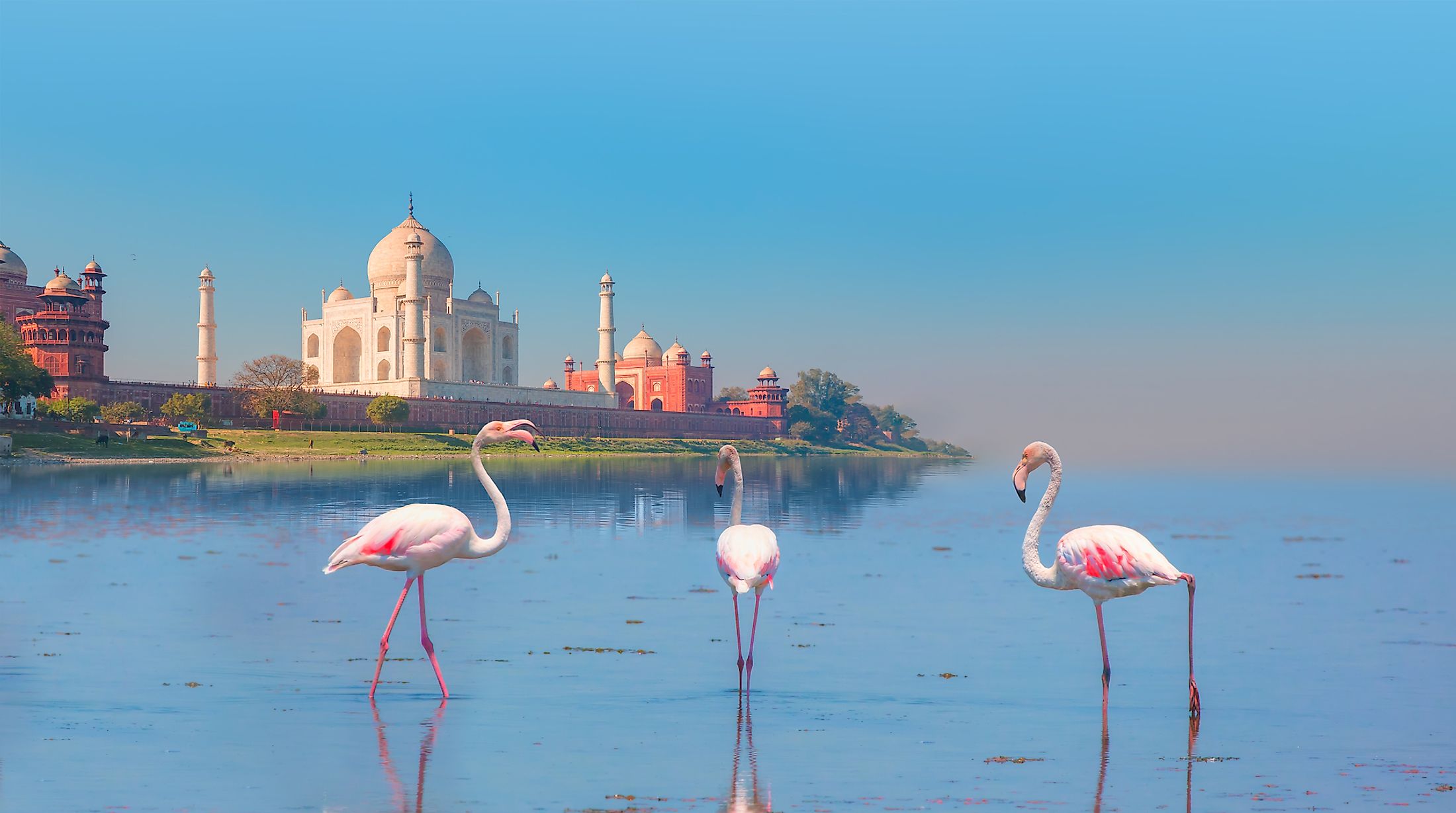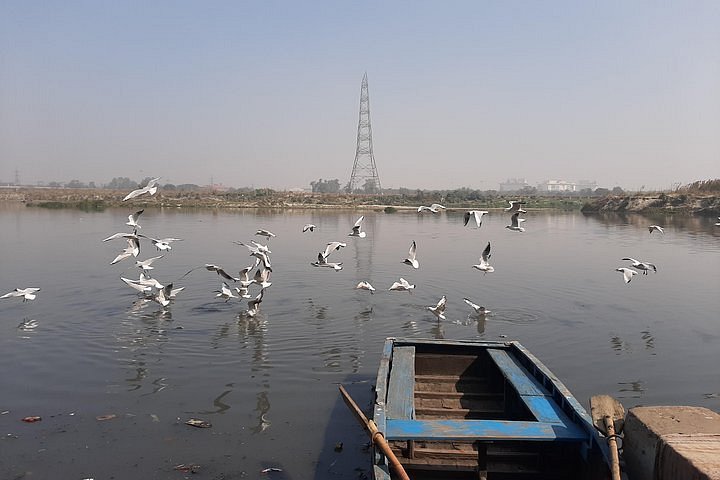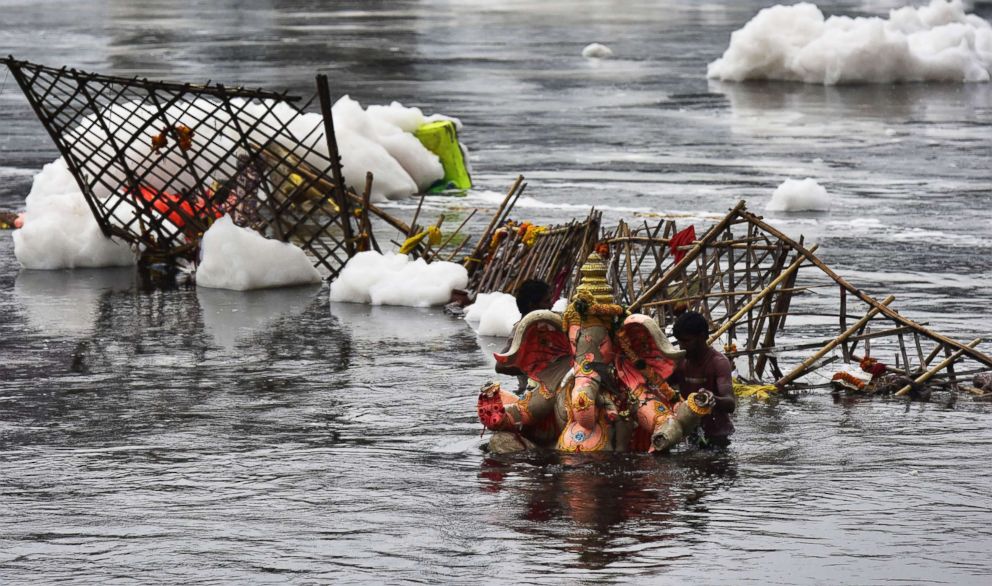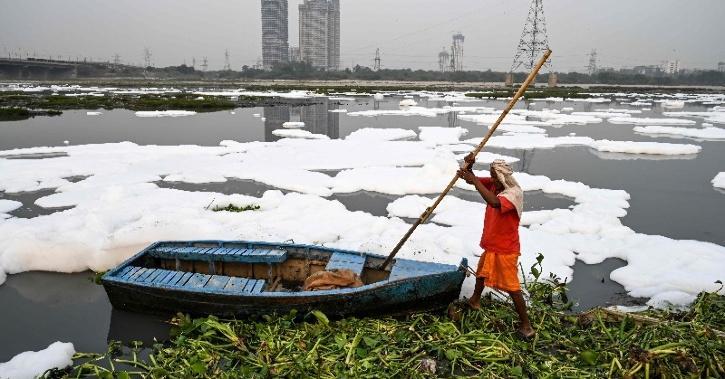Exploring the Yamuna River: India's Iconic Waterway

If you plan a trip to India, exploring the Yamuna River should be on your itinerary. This iconic waterway holds immense significance, historically and culturally, and offers a unique experience for adventurers and nature lovers.
Introduction to the Yamuna River and its significance in India
The Yamuna River is not just any river in India; it holds immense religious importance in Hindu mythology. Considered one of the sacred rivers, it is believed to be the sister of the revered Ganges River. A dip in the holy waters of the Yamuna is said to cleanse the soul and wash away sins.
In addition to its religious significance, the Yamuna River is an important lifeline for the people of India. It serves as a major water source for both domestic and irrigation purposes. The river flows through prominent cities like Delhi and Agra, traversing a distance of around 1,376 kilometres before joining the Ganges in Allahabad.
Historical and cultural importance of the Yamuna River
The Yamuna River has played a vital role in shaping the history and culture of India. It was the lifeline of ancient cities like Mathura and Vrindavan, closely associated with Lord Krishna. These cities attract millions of devotees each year who come to pay their respects and immerse themselves in the spiritual aura of the river.
The river also boasts architectural marvels along its banks, including the world-famous Taj Mahal in Agra. This magnificent monument, with its stunning reflection in the Yamuna, stands as a testimony to the rich heritage and grandeur of the region.
Environmental challenges faced by the Yamuna River
Despite its religious and cultural significance, the Yamuna River faces severe environmental challenges. Pollution from industrial waste, sewage, and other sources has significantly deteriorated its water quality. Efforts are being made by the government and various organizations to combat these challenges and restore the river to its former glory.
Exploring the Yamuna River allows you to witness its beauty and its ongoing efforts to save it. From boat rides and riverside walks to visiting ancient temples and architectural marvels, this iconic waterway offers a truly memorable experience that will leave you in awe of India's rich cultural and natural heritage.

Exploring the Yamuna River: India's Iconic Waterway
When you think of India, one of the most iconic and historically significant waterways that comes to mind is the Yamuna River. Flowing through the northern plains of India, the Yamuna River holds a special place in the hearts of Indians and attracts tourists worldwide.
Historical Significance
Historical monuments and sites along the banks of the Yamuna River: The Yamuna River is flanked by many historical monuments and sites that offer a glimpse into India's rich history. From the iconic Taj Mahal in Agra to the majestic Red Fort in Delhi, these historical wonders stand tall on the banks of the Yamuna River, mesmerizing visitors with their architectural brilliance.
Role of the Yamuna River in ancient Indian civilizations: The Yamuna River played a crucial role in developing ancient Indian civilizations. It served as a lifeline for trade and transportation, connecting various cities and kingdoms. The river's fertile banks provided sustenance to the people, allowing civilization to flourish along its course.
Historical events and legends associated with the Yamuna River: The Yamuna River is steeped in mythology and folklore. According to Hindu mythology, Lord Krishna, an incarnation of Lord Vishnu, spent his childhood on the banks of the Yamuna River in the city of Mathura. Numerous tales and legends revolve around his divine frolics and interactions with the river, adding to its historical significance.
Exploring the Yamuna River offers a unique opportunity to delve into India's rich history, immerse oneself in its cultural heritage, and witness the architectural marvels that have withstood the test of time.
So, whether you're strolling along the banks of the Yamuna River, admiring the historical monuments, or taking a boat ride to soak in the serenity of this iconic waterway, the Yamuna River promises an unforgettable experience that combines history, spirituality, and natural beauty.

Revered Temples and Ghats
Famous temples and religious sites along the Yamuna River
When visiting the Yamuna River, you will encounter several renowned temples and religious sites significant in Indian culture. One such temple is the Yamuna Temple in Mathura, the birthplace of Lord Krishna. Devotees flock to this sacred site to offer their prayers and seek blessings.
Another notable temple is the Keshi Ghat in Vrindavan, associated with various stories from Krishna's childhood. This ghat is a major attraction for pilgrims who take a holy dip in the river and participate in religious ceremonies.
Significance of the ghats and their religious rituals
The ghats along the Yamuna River are integral to Hindu rituals and traditions. These riverfront steps provide a platform for devotees to perform various religious activities, including offering prayers, performing aarti (a ritual of worship involving fire), and immersing idols or ashes in the holy waters.
One such ghat is the Vishram Ghat in Mathura, where Lord Krishna is said to have rested after defeating the evil demon Kansa. Devotees visit this ghat to take a holy bath and pay homage to Lord Krishna.
Pilgrimages and festivals celebrated near the Yamuna River
The Yamuna River is deeply associated with numerous pilgrimages and festivals that attract devotees from all over the country. One of the most important festivals celebrated in this region is the Yamuna Jayanti, which marks the birth anniversary of the river. Devotees perform various rituals and prayers to express gratitude and seek blessings from the sacred river.
During the festival of Kartik Purnima, devotees gather near the Yamuna River to participate in the traditional deepdan ceremony, where lamps are floated on the river to commemorate the bond between Lord Krishna and the river.
Exploring the Yamuna River provides a unique opportunity to immerse yourself in India's rich spiritual and cultural heritage. The temples, ghats, and festivals along the river offer a glimpse into the deep-rooted traditions passed down through generations. So, add the Yamuna River to your itinerary if you want to experience the vibrant tapestry of India's iconic waterway.

Eco-Tourism and Recreational Activities
When exploring the vibrant country of India, one iconic destination that should not be missed is the Yamuna River. The Yamuna River is a must-visit for nature lovers and adventure enthusiasts alike, offering a wealth of opportunities for eco-tourism, wildlife exploration, and water recreational activities.
Opportunities for eco-tourism and wildlife exploration along the Yamuna River
The Yamuna River is home to diverse flora and fauna, making it a paradise for wildlife enthusiasts. You can find several bird sanctuaries and nature reserves along its banks, such as the Surajpur Wetland and the Okhla Bird Sanctuary. These areas provide a unique opportunity to observe and learn about various bird species, including migratory birds that flock to the river during winter.
Moreover, eco-tourism initiatives have been established to promote sustainable travel and conservation efforts. These initiatives offer guided tours and treks along the river, allowing visitors to immerse themselves in the natural beauty of the surroundings while supporting local communities.
Water recreational activities and sports in and around the river
The Yamuna River offers a range of water recreational activities for those seeking adventure and excitement. White-water rafting is a popular sport in the region, with rapids providing an exhilarating experience for thrill-seekers. Kayaking and canoeing are also available for those who prefer a more leisurely river exploration.
In addition, fishing enthusiasts can indulge in angling along the riverbanks, where species like Mahseer and Catla are abundant. Fishing trips and tournaments are organized regularly, offering a chance to enjoy the tranquillity of the river while engaging in a favourite pastime.
Boat rides and cruises for a unique experience on the Yamuna River
Exploring the Yamuna River would not be complete without a boat ride or cruise. These scenic journeys allow you to witness the grandeur of historical landmarks such as the Taj Mahal and the Agra Fort, situated on the river's banks. Sunset cruises are particularly popular, providing a breathtaking view of the iconic monuments as the sun sets over the Yamuna.
Whether you are a nature lover, an adventure enthusiast, or a history buff, the Yamuna River offers something for everyone. Its lush surroundings, diverse wildlife, and exciting recreational activities make it an unforgettable exploring destination. So, hop on a boat, grab a paddle, join an eco-tour, and embark on a memorable journey along the iconic Yamuna River.

Environmental Challenges and Conservation Efforts
Pollution and degradation of the Yamuna River
If you plan to explore the Yamuna River in India, it is important to be aware of its environmental challenges. The river, considered one of the most sacred in Hindu culture, is heavily polluted and degraded. Industrial waste, sewage, and religious offerings are some of the major contributors to the pollution.
Discharging untreated sewage is a significant problem, introducing harmful bacteria and chemicals into the water. Industrial effluents containing heavy metals, pesticides, and other pollutants further degrade the river's ecosystem. These pollutants harm aquatic life and pose health risks to the communities living along the river.
Initiatives and measures taken for the conservation of the river
Various initiatives have been undertaken to conserve the Yamuna River in recent years. The Indian government, non-governmental organizations (NGOs) and local communities have implemented a range of measures to address the pollution and degradation issues.
Efforts include the construction of sewage treatment plants, the installation of waste management systems, and the promotion of eco-friendly practices. Awareness campaigns and educational programs are also being conducted to educate the public about the importance of conserving this iconic waterway.
Role of Government and non-governmental Organizations in Preserving the Yamuna River
The Indian government has mandated the Yamuna Action Plan (YAP) to tackle the pollution problem. YAP aims to restore the river's water quality and ecological health by implementing various pollution control measures.
Non-governmental organizations such as the Yamuna Jiye Abhiyaan and the Clean Yamuna Project have also played a vital role in preserving the Yamuna River. These organizations work closely with communities and government agencies to raise awareness, conduct clean-up drives, and advocate for sustainable solutions.
Preserving the Yamuna River requires a collective effort from the government, NGOs, communities, and individuals. By implementing effective measures and fostering a sense of responsibility towards the environment, we can hope to restore the Yamuna River to its former glory.

Importance of preserving and restoring the Yamuna River for future generations
Preserving and restoring the Yamuna River is of utmost importance for the well-being of current and future generations. Here are a few key reasons why it is crucial to take immediate action:
-
Protecting ecosystems: The Yamuna River is home to diverse ecosystems and species. By restoring the river, we can safeguard these habitats and ensure the survival of countless plants and animals.
-
Ensuring water security: The Yamuna River is an important water source for millions. Preserving its water quality and quantity is crucial for ensuring water security and meeting the needs of both urban and rural communities.
-
Cultural and religious significance: The Yamuna River holds immense cultural and religious significance. By restoring the river, we protect our natural heritage and honour the centuries-old traditions and beliefs associated with it.
-
Promoting sustainable development: Restoring the Yamuna River can lead to sustainable regional development. A healthy river ecosystem can support agriculture, tourism, and other industries, providing livelihood opportunities for communities living along its banks.
Individuals, communities, and government bodies must unite and take collective responsibility for preserving and restoring the Yamuna River. By implementing stricter pollution control measures, promoting eco-friendly practices, and raising awareness, we can ensure that this iconic waterway continues flowing for generations.
